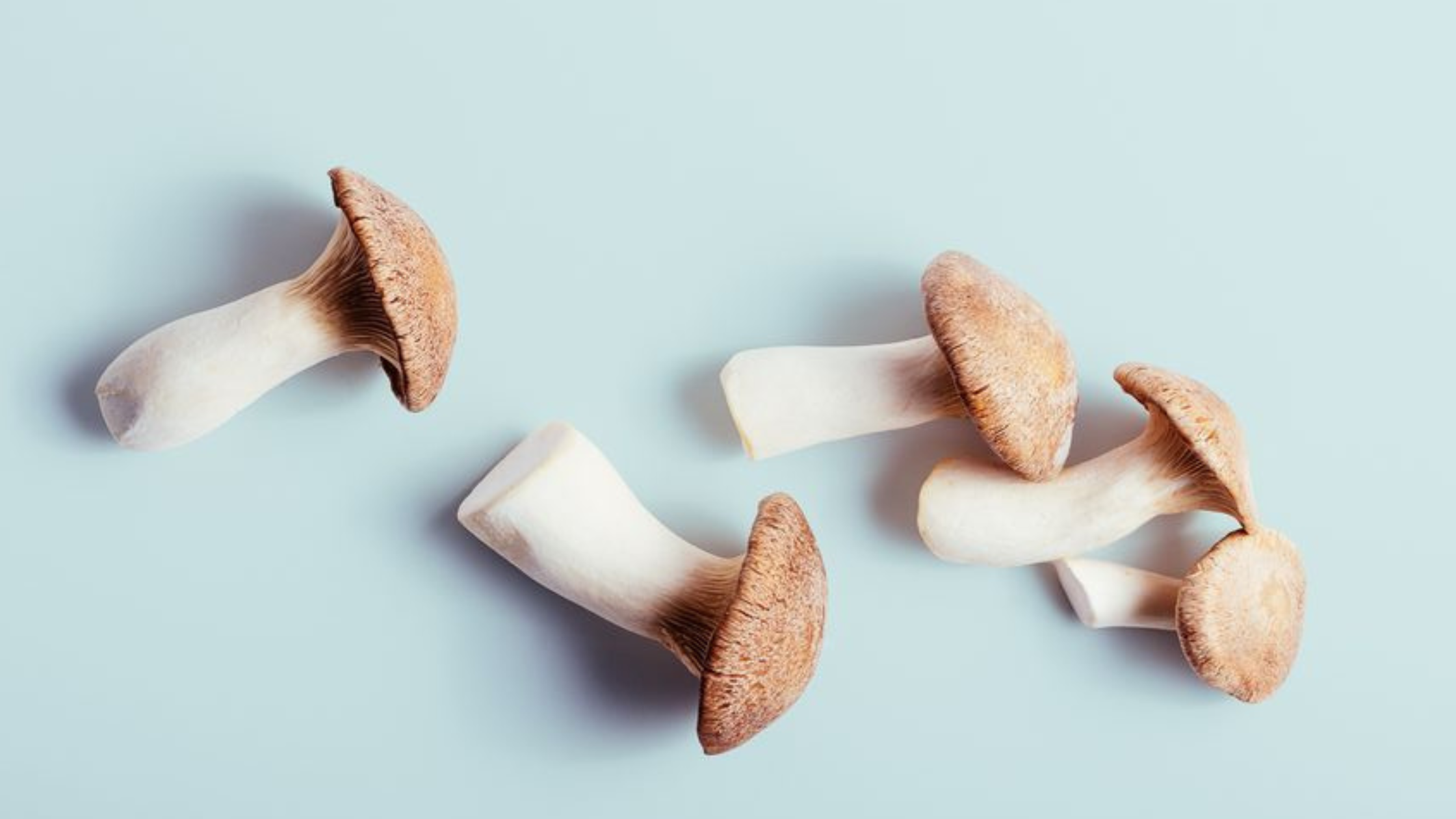
Integrative Approaches to Easing Premenstrual Syndrome (PMS)
Written by Ariana Singer and Dr. Chloe Givens, Chief Scientific Officer
Key Takeaways
- Cognitive Behavioral Therapy (CBT) and mindfulness can effectively manage the psychological effects of PMS, which affect almost 50% of people of reproductive age.
- Adopting healthy lifestyle habits, including proper sleep, stress management, and a balanced diet, can significantly support your PMS experience and alleviate symptoms experienced by about 20% of people with PMS severe enough to disrupt daily activities.
- Using herbs and supplements, such as chaste berry, ginkgo biloba, saffron, vitamin B6, and calcium, can target different causes of PMS and provide natural relief.
- Utilizing CBD during your cycle can help ease both psychological and physical PMS symptoms, offering a modern approach to PMS management. Imagine a life where the disruptive effects of premenstrual syndrome (PMS) no longer dictate your daily routine.
What if you could embrace each phase of your menstrual cycle with a sense of balance and well-being? Premenstrual Syndrome (PMS) is a set of psychological and physical effects experienced by many people before they begin monthly menstruation. Almost 50% of people of reproductive age experience some form of PMS with menstruation, ranging from mild to severe enough to disrupt daily life. About 20% of these individuals experience symptoms severe enough to interfere with their daily activities. The most common psychological symptoms are depressed mood, mood swings, irritability, and anger, while the most common physical symptoms are joint or muscle pain, headache, abdominal bloating, and breast tenderness.
With such a large population affected, there has been increasing interest in how PMS can be naturally and holistically supported. While pharmacological options like hormonal birth control, antidepressants, and painkillers are well-researched, there has been more focus on the efficacy and safety of integrative approaches. This comprehensive guide highlights some of these approaches to provide techniques to help support and ease the PMS experience.
Understanding Inflammation
Before diving into specific strategies, it's important to understand the role of inflammation in PMS. Inflammation is the body's natural response to injury or infection, but chronic inflammation can exacerbate PMS symptoms. Hormonal fluctuations during the menstrual cycle can lead to increased inflammation, causing pain, bloating, and mood swings. By addressing inflammation through diet, lifestyle changes, and integrative therapies, we can alleviate many PMS symptoms.
If you are interested in learning more about how inflammation occurs and affects us, you'll enjoy the blog linked below!
Psychological Interventions
Addressing the psychological aspects of PMS is crucial for comprehensive symptom management.Strategies like Cognitive Behavioral Therapy (CBT) and mindfulness can significantly improve mental well-being during the menstrual cycle.
Cognitive Behavioral Therapy (CBT)
Cognitive Behavioral Therapy (CBT) is a form of talk therapy focusing on developing skills to identify the relationship between thoughts, feelings, and behavior. Research shows that the way an individual perceives an event can directly impact their mental and physical experience of it. By altering the perception of their PMS experience, they can change it. CBT has been shown to improve mood, anxiety disorders, and physical symptoms like pain. This is promising for PMS support since anxiety, depression, negative behavior changes, and interference in daily life are common symptoms. Incorporating CBT into your routine can equip you with healthier coping mechanisms and improve your overall quality of life during your menstrual cycle.
Mindfulness
An element frequently incorporated with CBT is mindfulness, which emphasizes living in the present moment rather than dwelling on the past or future. Mindfulness has been shown to improve depression, stress, and anxiety among women with PMS. Reducing worry helps mindfulness act as a protector against common psychological PMS symptoms. By focusing attention on the present moment and maintaining a non-judgmental awareness of transient thoughts and emotions, mindfulness encourages individuals to observe their thoughts and feelings without attachment, promoting a balanced mental state. This practice can significantly enhance emotional stability and reduce PMS-related stress and anxiety.
Physical Interventions
In addition to psychological approaches, physical interventions like acupuncture offer tangible benefits for alleviating PMS symptoms.
Acupuncture
Acupuncture uses small needles to stimulate sensory nerves, reducing pain and inflammation. There is evidence suggesting acupuncture improves many physical PMS symptoms, such as pain, headaches, migraines, and joint and muscle pain. Despite mixed results regarding its effectiveness, acupuncture is recommended due to its low risk of harm compared to medications commonly used to treat similar symptoms. This integrative modality involves stimulating sensory nerves, leading to the release of pain-relieving endorphins and acting on various inflammatory markers. Incorporating acupuncture into a broader treatment plan may help many women experience significant relief from PMS symptoms and improve their physical well-being.
To further support your PMS journey, adopting specific lifestyle habits can lay a strong foundation for overall well-being.
Individual Lifestyle Habits
Sleep and Stress Management
Sleep is crucial for overall health, and poor sleep can increase inflammation, worsening PMS symptoms. Stress reduction and management are also effective for PMS support. Yoga, meditation, and massage are common methods to manage stress and improve sleep. Poor sleep can actually increase inflammation and exacerbate PMS symptoms, making prioritizing rest a non-negotiable aspect of managing PMS. Managing stress is equally important, as chronic stress can impact your body's natural hormonal rhythm and how it metabolizes stress. Engaging in activities like yoga can significantly improve vitality and mental health, as well as reduce pain related to PMS symptoms.
Diet
A well-rounded diet can significantly reduce PMS symptoms. Foods like fruits, vegetables, healthy fats, whole grains, fish, and meats reduce the risk of various PMS symptoms. Conversely, highly processed carbohydrates, caloric foods, alcohol, caffeine, and tobacco can worsen PMS symptoms. During the luteal phase of the menstrual cycle, focusing on foods that stabilize blood sugar and ward off PMS symptoms can make a substantial difference. Including foods containing B vitamins, I3C-rich foods, and probiotic-rich foods in your diet can help alleviate digestive issues and balance hormones, ultimately supporting a smoother menstrual experience.
Specific foods to incorporate include:
- Dark leafy greens: Spinach, kale, and Swiss chard are rich in magnesium, which can help reduce bloating and water retention.
- Cruciferous vegetables: Broccoli, Brussels sprouts, and cauliflower contain indole-3-carbinol (I3C) that helps detoxify estrogen and balance hormones.
- Whole grains: Brown rice, quinoa, and oats provide fiber and B vitamins, which support energy levels and mood stability.
- Healthy fats: Avocados, nuts, seeds, and fatty fish like salmon are rich in omega-3 fatty acids that reduce inflammation.
- Probiotic foods: Yogurt, kefir, sauerkraut, and tempeh support gut health and reduce digestive discomfort.
Physical Activity
Regular physical activity supports many PMS symptoms through several pathways. Fatigue, depression, pain, anxiety, and anger are commonly alleviated by exercise. Physical activity and exercise play a significant role in maintaining overall health and well-being. Incorporating regular physical activity into your routine can help reduce fatigue, improve mood, and alleviate various physical symptoms associated with PMS. Prioritizing movement can enhance your overall quality of life and help you better manage PMS.
Herbs and Supplements
Herbal Remedies
Incorporating herbal allies into your regimen is another way to holistically support PMS symptoms. Herbs like chaste berry, ginkgo biloba, and saffron have been shown to reduce PMS symptoms. Chaste berry is effective for physical and psychological symptoms, ginkgo biloba reduces physical symptoms, and saffron improves mood and psychological symptoms. Incorporating these herbs into your regimen can provide natural relief from various PMS symptoms.
- Chaste Berry (Vitex agnus-castus): Known for balancing hormones, it can reduce breast tenderness, headaches, and irritability.
- Ginkgo Biloba: Enhances blood circulation and reduces physical symptoms like cramps and headaches.
- Saffron: Improves mood and alleviates depression and anxiety associated with PMS.
Supplements
Supplements like vitamin B6 and calcium support emotional and psychological symptoms of PMS. Vitamin B6 is known to help manage anxiety, depression, mood swings, and irritability, while calcium alleviates pain associated with PMS. These supplements can be a valuable addition to your routine for managing PMS effectively.
- Vitamin B6: Supports neurotransmitter function, reducing mood swings and irritability.
- Calcium: Helps reduce water retention and menstrual pain.
Traditional Chinese Medicine (TCM)
Traditional Chinese Medicine (TCM) offers a holistic approach to health and wellness, emphasizing the balance and flow of energy within the body. Rooted in over 2,000 years of practice, TCM uses a combination of herbal medicine, acupuncture, dietary therapy, and other techniques to treat various health conditions. For PMS, TCM views symptoms as a result of imbalances in the body's Qi (energy) and blood, often related to the liver and spleen. By restoring balance through specific herbs and practices, TCM aims to alleviate PMS symptoms and promote overall well-being.
Herbs like Dong Quai, goji berry, wild yam, and chaste tree berry help regulate menstruation, reduce inflammation, alleviate PMS symptoms, and support healthy weight management. TCM herbs like valerian and saffron promote better sleep and mental well-being, while peppermint and ginger aid in digestive support.
- Dong Quai: Known as the "female ginseng," it balances hormones and reduces menstrual cramps.
- Goji Berry: Supports liver health and hormone regulation.
- Wild Yam: Contains diosgenin, which has progesterone-like effects, reducing PMS symptoms.
- Chaste Tree Berry: Regulates menstrual cycles and reduces symptoms like breast tenderness and mood swings.
In addition to the integrative modalities described above, the Endocannabinoid System (ECS) plays a crucial role in PMS management,
Endocannabinoid System (ECS) and CBD
Understanding the ECS
The Endocannabinoid System (ECS) is a complex network of receptors, endocannabinoids, and enzymes that work together to maintain homeostasis in the body. The ECS plays a crucial role in regulating various physiological processes, including pain, mood, appetite, and immune response. The two primary receptors in the ECS are CB1, found mainly in the brain and central nervous system, and CB2, located primarily in the immune system and peripheral tissues.
Endocannabinoids, such as anandamide and 2-AG, are naturally produced by the body and bind to these receptors to regulate functions and maintain balance. When the ECS is out of balance, it can lead to various health issues, including those related to PMS. Phytocannabinoids, like CBD, interact with the ECS to help restore balance and alleviate symptoms.
Benefits of CBD for PMS
CBD, or cannabidiol, is a non-intoxicating compound found in the cannabis plant. Unlike THC, CBD does not produce a "high" but offers numerous therapeutic benefits. CBD interacts with ECS receptors, influencing the release of neurotransmitters and reducing pain perception. It also has anti-inflammatory properties that can alleviate physical symptoms like cramps and headaches. Additionally, CBD can help manage stress and anxiety, promoting a sense of calm and relaxation during the menstrual cycle.
Element Apothec Products
Element Apothec’s Relief Wellness Patch: Combines 35mg of hemp-derived CBD with healing botanicals, providing continuous relief and supporting overall wellness. This patch delivers a slow, consistent dose of CBD isolate and plant-based ingredients over 24 hours, easing muscle discomfort and reducing tension. Ingredients like wintergreen leaf oil, menthol, and rosemary oil work synergistically to enhance the patch's effectiveness.
Calm Cool Collect | Tincture: Helps remain calm and relaxed. This tincture is designed to promote relaxation and reduce stress, making it a valuable tool for managing PMS symptoms. Formulated with CBD and other calming herbs, it supports emotional balance and mental clarity.
Rest Relax Recover | Tincture: Supports deep sleep. This tincture helps improve sleep quality, ensuring you get the rest you need to manage PMS symptoms effectively. Combining CBD with sleep-promoting botanicals like valerian root and chamomile, it enhances relaxation and restorative sleep.
Embracing Balance and Well-Being
Incorporating these holistic and integrative approaches can significantly transform your PMS experience. By addressing both psychological and physical symptoms through therapies like CBT and mindfulness, acupuncture, lifestyle changes, herbal remedies, and the powerful benefits of CBD, you can achieve a balanced and empowered menstrual cycle. Embrace these strategies and discover how they can enhance your overall well-being, allowing you to navigate your cycle with grace and resilience.
Comprehensive Support for Your PMS Journey
To further explore how you can support your PMS journey with integrative and holistic approaches, visit elementapothec.com. For any questions or curiosities, feel free to visit our "Ask Dr. Chloe" page. Learn more about personalized strategies to enhance your well-being and empower your menstrual cycle.
References
- Premenstrual syndrome: Overview. In: InformedHealth.Org [Internet]. Institute for Quality and Efficiency in Health Care (IQWiG); 2017. Accessed March 25, 2024. https://www.ncbi.nlm.nih.gov/books/NBK279265/
- Gudipally PR, Sharma GK. Premenstrual Syndrome. In: StatPearls. StatPearls Publishing; 2024. Accessed March 24, 2024. http://www.ncbi.nlm.nih.gov/books/NBK560698/
- Premenstrual syndrome (PMS) - Symptoms & causes - Mayo Clinic. Accessed March 25, 2024. https://www.mayoclinic.org/diseases-conditions/premenstrual-syndrome/symptoms-causes/syc-20376780
- Overview - Cognitive behavioural therapy (CBT). nhs.uk. Published February 10, 2021. Accessed April 10, 2024. https://www.nhs.uk/mental-health/talking-therapies-medicine-treatments/talking-therapies-and-counselling/cognitive-behavioural-therapy-cbt/overview/
- Health MC for WM. Cognitive Behavioral Therapy for Premenstrual Syndromes: A Review of the Literature - MGH Center for Women’s Mental Health. Published April 6, 2009. Accessed April 10, 2024. https://womensmentalhealth.org/posts/cognitive-behavioral-therapy-for-premenstrual-syndromes-a-review-of-the-literature/, https://womensmentalhealth.org/posts/cognitive-behavioral-therapy-for-premenstrual-syndromes-a-review-of-the-literature/
- Yesildere Saglam H, Orsal O. Effect of exercise on premenstrual symptoms: A systematic review. Complement Ther Med. 2020;48:102272. doi:10.1016/j.ctim.2019.102272
- What is mindfulness? - Mental wellbeing tips - Every Mind Matters. nhs.uk. Published April 11, 2023. Accessed April 17, 2024. https://www.nhs.uk/every-mind-matters/mental-wellbeing-tips/what-is-mindfulness/
- Panahi F, Faramarzi M. The Effects of Mindfulness-Based Cognitive Therapy on Depression and Anxiety in Women with Premenstrual Syndrome. Depress Res Treat. 2016;2016:9816481. doi:10.1155/2016/9816481
- Acupuncture. nhs.uk. Published October 17, 2017. Accessed April 10, 2024. https://www.nhs.uk/conditions/acupuncture/
- Armour M, Ee CC, Hao J, Wilson TM, Yao SS, Smith CA. Acupuncture and acupressure for premenstrual syndrome. Cochrane Database Syst Rev. 2018;(8). doi:10.1002/14651858.CD005290.pub2
- Kim SY, Park HJ, Lee H, Lee H. Acupuncture for premenstrual syndrome: a systematic review and meta-analysis of randomised controlled trials. BJOG Int J Obstet Gynaecol. 2011;118(8):899-915. doi:10.1111/j.1471-0528.2011.02994.x
- Dennerstein L, Lehert P, Heinemann K. Global study of women’s experiences of premenstrual symptoms and their effects on daily life. Menopause Int. 2011;17(3):88-95. doi:10.1258/mi.2011.011027
- Jeong D, Lee H, Kim J. Effects of sleep pattern, duration, and quality on premenstrual syndrome and primary dysmenorrhea in korean high school girls. BMC Womens Health. 2023;23. doi:10.1186/s12905-023-02600-z
- Tsai SY. Effect of Yoga Exercise on Premenstrual Symptoms among Female Employees in Taiwan. Int J Environ Res Public Health. 2016;13(7):721. doi:10.3390/ijerph13070721
- Arias AJ, Steinberg K, Banga A, Trestman RL. Systematic review of the efficacy of meditation techniques as treatments for medical illness. J Altern Complement Med N Y N. 2006;12(8):817-832. doi:10.1089/acm.2006.12.817
- Hernandez-Reif M, Martinez A, Field T, Quintero O, Hart S, Burman I. Premenstrual symptoms are relieved by massage therapy. J Psychosom Obstet Gynaecol. 2000;21(1):9-15. doi:10.3109/01674820009075603
- Sleep Matters: The Impact Of Sleep On Health And Wellbeing. Accessed April 10, 2024. https://www.mentalhealth.org.uk/explore-mental-health/publications/sleep-matters-impact-sleep-health-and-wellbeing
- Siminiuc R, Ţurcanu D. Impact of nutritional diet therapy on premenstrual syndrome. Front Nutr. 2023;10:1079417. doi:10.3389/fnut.2023.1079417
- Office of Dietary Supplements - Thiamin. Accessed April 5, 2024. https://ods.od.nih.gov/factsheets/Thiamin-HealthProfessional/
- Avenue 677 Huntington, Boston, Ma 02115. Riboflavin – Vitamin B2. The Nutrition Source. Published July 24, 2020. Accessed April 5, 2024. https://www.hsph.harvard.edu/nutritionsource/riboflavin-vitamin-b2/
- Houghton SC, Manson JE, Whitcomb BW, et al. Carbohydrate and fiber intake and the risk of premenstrual syndrome. Eur J Clin Nutr. 2018;72(6):861-870. doi:10.1038/s41430-017-0076-8
- Firth J, Gangwisch JE, Borsini A, Wootton RE, Mayer EA. Food and mood: how do diet and nutrition affect mental wellbeing? BMJ. 2020;369:m2382. doi:10.1136/bmj.m2382
- Mohebbi Dehnavi Z, Jafarnejad F, Sadeghi Goghary S. The effect of 8 weeks aerobic exercise on severity of physical symptoms of premenstrual syndrome: a clinical trial study. BMC Womens Health. 2018;18:80. doi:10.1186/s12905-018-0565-5
- Dante G, Facchinetti F. Herbal treatments for alleviating premenstrual symptoms: a systematic review. J Psychosom Obstet Gynaecol. 2011;32(1):42-51. doi:10.3109/0167482X.2010.538102
- Csupor D, Lantos T, Hegyi P, et al. Vitex agnus-castus in premenstrual syndrome: A meta-analysis of double-blind randomised controlled trials. Complement Ther Med. 2019;47:102190. doi:10.1016/j.ctim.2019.08.024
- Canning S, Waterman M, Dye L. Dietary supplements and herbal remedies for premenstrual syndrome (PMS): a systematic research review of the evidence for their efficacy. In: Database of Abstracts of Reviews of Effects (DARE): Quality-Assessed Reviews [Internet]. Centre for Reviews and Dissemination (UK); 2006. Accessed March 25, 2024. https://www.ncbi.nlm.nih.gov/books/NBK72353/
- Irani M, Rahmanian A, Soltani N. Efficacy of Saffron (Crocus sativus L.) in Premenstrual Syndrome, Labor, Childbirth, and Menopause: A Systematic Review of Clinical Trials. Mod Care J. 2023;20(3). doi:10.5812/modernc-134533
- Wyatt KM, Dimmock PW, Jones PW, Shaughn O’Brien PM. Efficacy of vitamin B-6 in the treatment of premenstrual syndrome: systematic review. BMJ. 1999;318(7195):1375-1381.
- De Souza MC, Walker AF, Robinson PA, Bolland K. A synergistic effect of a daily supplement for 1 month of 200 mg magnesium plus 50 mg vitamin B6 for the relief of anxiety-related premenstrual symptoms: a randomized, double-blind, crossover study. J Womens Health Gend Based Med. 2000;9(2):131-139. doi:10.1089/152460900318623
- Calcium carbonate and the premenstrual syndrome: Effects on premenstrual and menstrual symptoms. Accessed April 3, 2024. https://oce.ovid.com/article/00000447-199808000-00029
- Thys-Jacobs S, Ceccarelli S, Bierman A, Weisman H, Cohen MA, Alvir J. Calcium supplementation in premenstrual syndrome: a randomized crossover trial. J Gen Intern Med. 1989;4(3):183-189. doi:10.1007/BF02599520
- Elix Herbs | Powerful healing from exceptional ingredients. Elix. Accessed April 10, 2024. https://elixhealing.com/pages/meet-the-herbs
- Bruni N, Pepa CD, Oliaro-Bosso S, Pessione E, Gastaldi D, Dosio F. Cannabinoid Delivery Systems for Pain and Inflammation Treatment. Mol J Synth Chem Nat Prod Chem. 2018;23(10). doi:10.3390/molecules23102478
- Barrie N, Manolios N. The endocannabinoid system in pain and inflammation: Its relevance to rheumatic disease. Eur J Rheumatol. 2017;4(3):210-218. doi:10.5152/eurjrheum.2017.17025
- Sholler DJ, Schoene L, Spindle TR. Therapeutic Efficacy of Cannabidiol (CBD): A Review of the Evidence from Clinical Trials and Human Laboratory Studies. Curr Addict Rep. 2020;7(3):405-412. doi:10.1007/s40429-020-00326-8
- Boyaji S, Merkow J, Elman RNM, Kaye AD, Yong RJ, Urman RD. The Role of Cannabidiol (CBD) in Chronic Pain Management: An Assessment of Current Evidence. Curr Pain Headache Rep. 2020;24(2):4. doi:10.1007/s11916-020-0835-4
This article was edited and medically reviewed by Dr. Chloe and was written by Dr. Chloe and Element Apothec Scientific Communications Intern, Ariana Singer.
test











